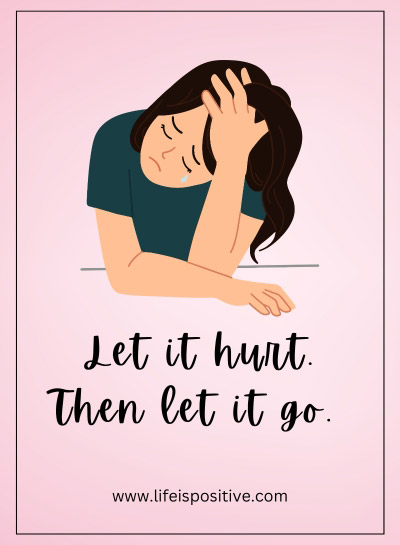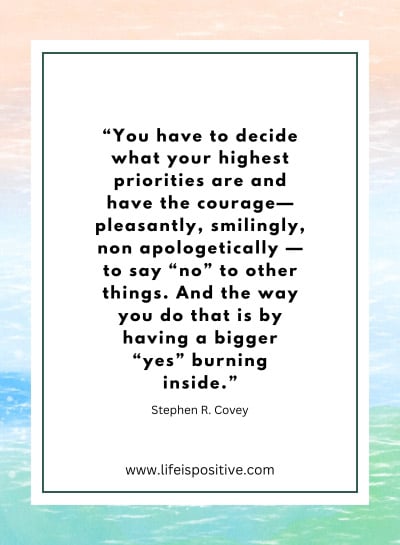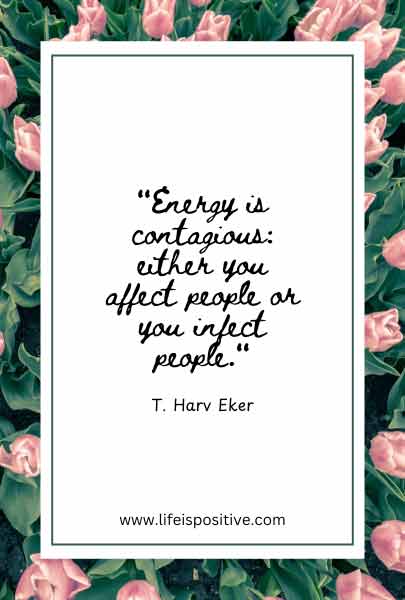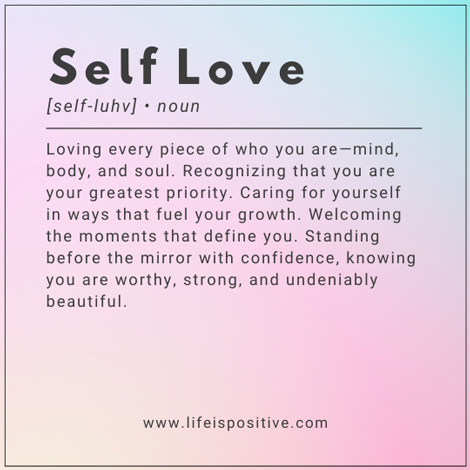|
Getting your Trinity Audio player ready...
|
We’ve all heard the saying, “Hurt people hurt people.” But what does it really mean? It’s simple: when someone is struggling with their own pain, that hurt often spills over, affecting their words, actions, and relationships. Whether it’s a sharp comment, a cold shoulder, or full-blown anger, the pain we carry can end up hurting those around us.
But here’s the good news—being one of those hurting people doesn’t mean you’re stuck in a never-ending cycle of pain. You can break the cycle, heal, and create healthier, happier connections.
1. Acknowledge the Pain (Don’t Ignore It)
The first step to breaking the cycle of hurting people is super simple but surprisingly tough—recognize that you’re hurting. Seriously, most of us are pros at burying our pain under busyness, distractions, or straight-up denial.
We tell ourselves, “I’m fine,” while stress, anger, or sadness quietly bubble under the surface. But here’s the thing: unacknowledged pain doesn’t just disappear—it sneaks out in unhealthy ways, like snapping at loved ones or feeling constantly drained.
So, hit pause for a second and get real with yourself. What’s actually bothering you? Is it a recent heartbreak? A betrayal you can’t shake? Or maybe an old wound you never really healed? Whatever it is, name it. When you give your pain a name, you take the first step toward healing it because you can’t fix what you won’t face.
2. Stop Playing the Blame Game
When you’re hurting, it’s super tempting to point fingers—“They made me feel this way!” or “It’s all their fault!” But here’s the hard truth: while someone else might have caused your pain, healing it is your responsibility. Blaming others keeps you stuck in a victim mindset, and honestly, that’s a one-way ticket to nowhere.
Instead of fixating on who hurt you, focus on how you can heal. Ask yourself, “What can I do to feel better?” or “How can I take back control of my emotions?” Shifting from blame to self-awareness is a total game-changer for hurting people who are ready to break free from the cycle. Because here’s the thing—healing doesn’t mean you’re letting anyone off the hook. It just means you’re choosing peace over pain.
3. Practice Forgiveness (For Real)
Yeah, I get it—easier said than done. But here’s the thing about forgiveness: It’s not about letting the other person off the hook. It’s about setting yourself free from the weight of anger and resentment. When hurting people cling to grudges, they end up hurting themselves more than anyone else. It’s like drinking poison and hoping the other person gets sick. Spoiler alert: They won’t.
Life is Positive
You don’t hurt people who hurt you—not because you’re weak, but because you’re wise.
You loved them once, and real love doesn’t switch to revenge mode. It just learns, lets go, and walks away with grace. You don’t waste energy plotting karma; you spend it on healing, growing, and becoming a stronger version of yourself. You forgive—not because they deserve it, but because you deserve peace. You close that chapter without slamming the door, and you never look back. Your story moves forward, while they become just a footnote in your journey.
Start by being honest with yourself. How do you really feel? Angry? Betrayed? Disappointed? Name it. Then ask yourself a simple but powerful question: “Is holding onto this pain actually helping me?” Nine times out of ten, the answer is no.
Forgiveness isn’t about pretending everything’s okay—it’s about choosing peace over pain. Practice it as an act of self-love, and you’ll notice your emotional baggage getting a little lighter. Your heart deserves the freedom, and so do you.
4. Set Boundaries Like a Pro
One big reason hurting people keep getting hurt? They don’t set clear boundaries. Maybe you’re a people pleaser who says “yes” when you really want to say “no.” Or maybe you let toxic people walk all over you because you’re trying to keep the peace. But here’s the thing—being a doormat isn’t peaceful. It’s exhausting.
Setting boundaries isn’t about being rude or harsh—it’s about protecting your peace. It’s about saying, “This is what I’m okay with, and this is what I’m not.” If someone crosses your boundaries, calmly let them know. No drama, no yelling—just a simple, “I’m not comfortable with that.”
Boundaries are a form of self-respect. They’re like a “no trespassing” sign for your mental and emotional well-being. So, stop feeling guilty for having limits. Start feeling proud for valuing yourself enough to set them.
Read: Turning Pain Into Purpose Quotes
5. Focus on Self-Awareness (Know Your Triggers)
Ever notice how some situations or comments sting way more than others? That’s because they hit your emotional triggers—those sensitive spots that instantly send you spiraling. Maybe a joke about your appearance makes you feel small, or a bit of criticism about your work leaves you questioning your entire existence. Sound familiar?
Understanding your triggers is a game-changer for hurting people who actually want to heal. The next time you feel that wave of anger, sadness, or anxiety coming on, hit pause and ask yourself, “Wait, what exactly triggered me?” Was it what they said, how they said it, or maybe something it reminded you of?
The more you understand your triggers, the better you can manage your reactions. Instead of letting them control you, you start to see them for what they are—emotional buttons that don’t have to be pressed. Knowledge is power, and in this case, it’s also peace.
6. Reframe Negative Thoughts
Hurting people often fall into a trap of negative thinking—stuff like, “I’m not good enough,” “No one cares about me,” or “Things will never get better.” Sound familiar? Here’s a little secret: your thoughts aren’t always facts. Just because your mind says it doesn’t make it true.
So the next time a negative thought pops up, don’t just accept it—challenge it. Ask yourself, “Is this really true?” Better yet, replace it with a more balanced perspective. Instead of thinking, “I’m a failure,” try, “I’m struggling right now, but that doesn’t define me.” See the difference?
It’s not about being overly positive or pretending everything’s perfect—it’s about being fair to yourself. Shifting your mindset isn’t just about thinking happy thoughts—it’s about thinking true thoughts. And the more you practice, the easier it gets to call out those mental lies and replace them with something real.
7. Surround Yourself with Positive People
You’ve probably heard that saying, “You are the average of the five people you spend the most time with.” Well, turns out, it’s pretty spot on. Hurting people often stay stuck because they’re surrounded by negativity, toxicity, or unsupportive vibes. Think of it like trying to swim with an anchor tied to your ankle—no wonder you feel weighed down.
If you want to heal, you’ve got to be a little picky about your people. Spend time with those who lift you up, cheer you on, and bring out the best in you. They’re like sunshine for your soul. And those toxic relationships? The ones that leave you feeling drained, criticized, or worse? Let them go—they’re emotional quicksand.
Your circle has the power to either drag you down or help you rise. So choose wisely. Hang out with people who see your worth even on your worst days.
Read: How to Stop Hating Someone Who Hurt You
8. Embrace Healthy Outlets for Your Emotions
Bottling up your emotions is basically a one-way ticket to becoming one of those hurting people. It’s like shaking a soda can—eventually, it’s going to explode, and nobody wants to be around for that mess. So instead of stuffing your feelings down and pretending they don’t exist, let them out—but in healthy ways.
Need to cry? Go for it. Feeling frustrated? Write it out in a journal. Got some pent-up anger? Punch a pillow (not a person). Take a run, create some art, dance it out in your living room, or meditate your stress away. Emotions are meant to be felt, not buried.
The key is finding an outlet that helps you release what you’re feeling without hurting yourself or anyone else. Because here’s the truth: your feelings are valid, but how you handle them is where your power lies. So let them out, but let them out wisely.
9. Learn to Communicate Effectively
Miscommunication is like the secret ingredient in the recipe for conflict, especially for hurting people. If you’re feeling upset, it’s super tempting to assume that others should just “get it.” Spoiler alert: They don’t. Nobody’s a mind reader. Instead of stewing in silence or lashing out with, “You never care about me,” try something way more effective—using “I” statements.
For example, instead of saying, “You never listen to me,” try, “I feel hurt when I’m ignored.” See the difference? It’s clear, honest, and doesn’t put the other person on the defensive. Suddenly, it’s a conversation, not a showdown.
Being direct about your feelings doesn’t make you demanding—it makes you understood. So if you want to avoid drama and actually connect, trade the guessing game for honest communication. Because if you don’t say what you need, how is anyone supposed to know?
10. Seek Professional Help (And Don’t Feel Ashamed)
Sometimes, the pain you’re carrying feels like a backpack full of bricks—way too heavy to handle on your own. And you know what? That’s totally okay. Reaching out for professional help—whether it’s therapy, counseling, or a support group—isn’t a sign of weakness. It’s actually a sign of serious strength.
A therapist can help you unpack that emotional baggage, figure out your patterns, and teach you healthier coping skills. It’s like having a personal guide for your mental and emotional health. And here’s the thing: you don’t have to wait until you’re drowning to get support. In fact, the best time to reach out is before things feel unbearable.
So if you’re feeling stuck, overwhelmed, or just plain tired of carrying your pain alone, remember—there’s no shame in asking for help. It’s one of the bravest things you can do.
11. Practice Self-Compassion
Hurting people are often their own worst critics. They turn their pain inward, beating themselves up with thoughts like, “I’m not good enough,” or “I always mess up.” But here’s the thing—healing doesn’t happen through self-punishment. It starts with self-compassion.
Next time you catch yourself spiraling into harsh self-talk, hit pause. Ask yourself, “Would I say this to a friend who’s struggling?” Probably not. So why is it okay to say it to yourself? Spoiler: It’s not.
Instead, flip the script. Replace “I’m a failure” with “I’m having a tough time, but I’m doing my best.” Swap “I always mess up” with “I’m still learning, and that’s okay.” Treat yourself with the same kindness, patience, and understanding you’d offer someone you love.
Because guess what? You deserve that kindness, too. Self-compassion isn’t just a feel-good idea—it’s a game-changer for breaking the cycle of hurting yourself.
Read: How to Learn to Trust Again
12. Let Go of Perfectionism
Perfectionism is like a trap disguised as ambition, and it’s a struggle that hurts people all too well. You tell yourself that you have to be perfect to be loved, successful, or worthy. But here’s the truth—perfection is a total myth. It doesn’t exist. And chasing it is like trying to catch a cloud.
Instead of obsessing over being flawless, try focusing on progress, not perfection. Celebrate your small wins, no matter how tiny they seem. Maybe you managed to get out of bed on a tough day—win. Maybe you tackled a task you’ve been avoiding—double win. And guess what? Mistakes aren’t failures—they’re just proof that you’re trying, learning, and growing.
The more you let go of perfectionism, the more room you create for self-love and healing. Because you don’t have to be perfect to be enough, you just have to be you. And that’s more than enough.
Final Thoughts: Breaking the Cycle of Hurting People
Breaking the cycle of hurting people starts with you. It’s not about being perfect or pretending everything’s fine—it’s about being real with yourself, healing your own pain, and choosing to respond with kindness instead of lashing out.
The world is full of hurting people, but it doesn’t have to be. You can be the one who breaks the cycle—the one who heals instead of hurts, who chooses love over bitterness.
Remember, healing is a journey, not a one-time fix. Some days will be easier than others, and that’s okay. On the tough days, be patient with yourself. On the good days, celebrate your progress. The important thing is to keep moving forward.
And remember—no matter what you’ve been through, you are worthy of healing. Always.
For more empowering content, connect with our vibrant community here ➡️ Social Media.




